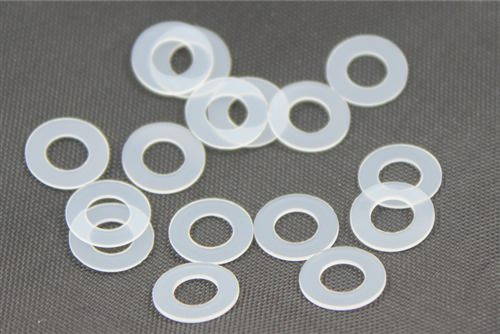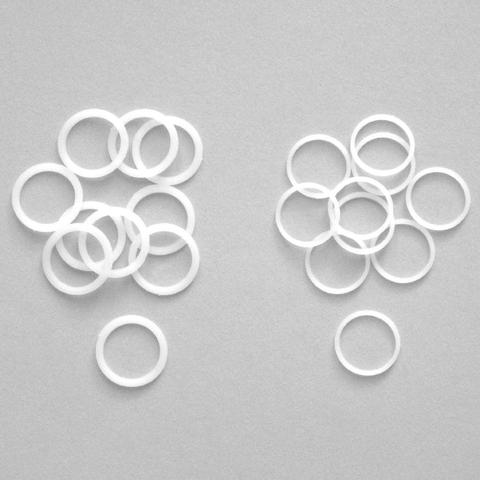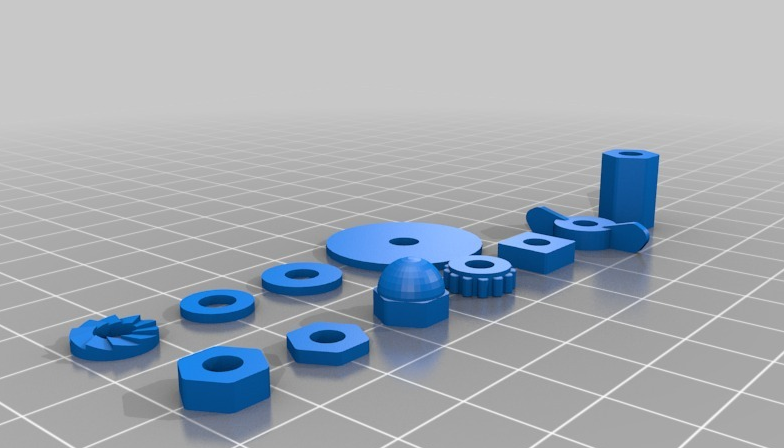Benefits of using Nylon for manufacturing Washers
Washers are an important part of any manufacturing job, especially when it comes to the use of threaded fasteners like screws, bolts and nuts. They are essentially thin, disk-shaped plates with a hole usually located in the centre. The main use of a washer is to evenly distribute a load of fasteners on a job, therefore preventing potential damage to surfaces. Washers also ensure that a bolt, nut or screw is pressed against a smooth surface, allowing the faster to secure a part while also reducing the chance of the fixing gradually loosening over time. They prevent galvanic corrosion when used with steel screws against aluminium surfaces, however, washers can also be used for other materials like wood and plastic, surfaces that are particularly liable to damage from fasteners.
Washers also come in different materials themselves, for varying applications and purposes. Mainly comprising of steel and different metals and plastics like copper, brass, aluminium, polyethene and PTFE, each material provides particular benefits. This includes nylon, which comes with its own advantages. Using the 3DCompare on-demand manufacturing platform, you can utilize our injection or 3D printing service to produce nylon washers, as it’s one of any materials we have in our manufacturing portfolio.

Advantages of Nylon washers
As mentioned previously, washers can be manufactured using a multitude of different materials; there are many choices available. However, choosing to use nylon to manufacture your washers provides a multitude of unique benefits:
-Excellent insulation properties
-Fireproof properties; resistant to high temperatures
-Weather-resistant
-Non-toxic and non-corrosive
-Resistant to friction and vibration
-Lightweight
-Cost-effective
-Flexible; can be used in a wide variety of applications, with different types of Nylon available
-Antimagnetic
These advantages combined, nylon washers maintain an ability to withstand intense wear and tear and movement without becoming damaged or compromised, applicable in a wide variety of industries. This is aided by the fact that there are different grades of nylon, like Nylon 6, Nylon MDS and Nylon 6/6, allowing for great versatility in the application of nylon washers, as varying characteristics can be matched to specific contexts. Furthermore, some of the advantages described above are unique to the nylon material, making it a superior choice to other washer materials if you are looking for specific properties, which we will be explored in further detail later on in this blog post.
Industries and applications for nylon washers
Below is a list of industries that actively use nylon washers:
-Aerospace
-Automotive
-Construction
-Military
-Marine
-Plumbing
-Medical
-Fire safety
Uses for nylon washers fall into a variety of applications within these industries. For example, in the medical industry, manufacturers use nylon washers in the production of their medical instruments. The plumbing industry utilizes the benefits of nylon washers to create seals that are durable and reliable, due to the properties of the material. The reliable performance of the material and its resistant properties means that nylon washers have also been used by the fire industry to build dependable sprinkler systems.

Choosing nylon over other metal to produce washers
Nylon washers present several key advantages over its metal washer counterparts that make it a preferred choice by many. Metal washers are more likely to deteriorate and at a quicker pace compared to nylon washers. Furthermore, the deterioration of metal is particularly problematic as it rusts out due to the friction that washers can experience. Nylon washers, however, have low surface friction, thus meaning deterioration is less likely, giving the material increased longevity.
Washers made with nylon also maintain better absorption performance compared to metal washers. They are able to nullify shock and noise more effectively than metal washers, thus creating a quieter and more stable build for equipment. Furthermore, they are non-toxic, whereas metal washers are. Over time, metallic substances can release corrosive and toxic byproducts, however, nylon is an inherently non-toxic material, making it ideal for chemical applications. Ultimately, nylon washers present a lightweight, durable, cheaper and therefore cost-effective alternative to metal that makes it a desirable choice for many users and industries.
Why you should use the 3D printing service on 3DCompare to produce nylon washers
With 3D printing, nylon washers with specific measurements can be created in a short amount of time; you can order up to 150 washers on the 3DCompare platform and receive them within 1-3 days. Whether for spare parts or end-user, washers are usually simple in design but require specific measurements; 3D printing enables the efficient production of washers according to exact parameters with single-step manufacturing, straight from CAD design to manufacturing the part, with lower costs compared to other manufacturing methods as well.
At 3DCompare, we’ll match you with the perfect manufacturer to produce your nylon washers at a low price once you have provided us with a CAD file, and you’ll receive the part swiftly for fast turnaround time. Furthermore, if you are looking to customize your washers, or explore the possibility of creating a more complex nylon washer with an intricate design, 3D printing is capable of achieving exact design parameters beyond traditional manufacturing methods.
However, you can still utilize the traditional method of injection moulding to produce your nylon washers on the 3DComare on-demand manufacturing platform. This is especially pertinent if you are looking to produce larger batches of nylon washers, as usually, this is where injection moulding becomes more cost and time-efficient.





